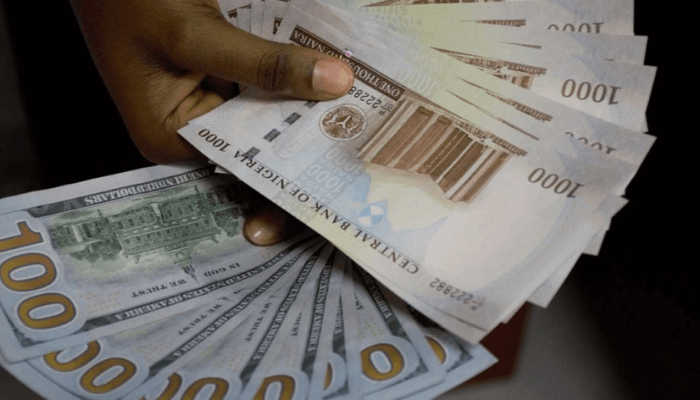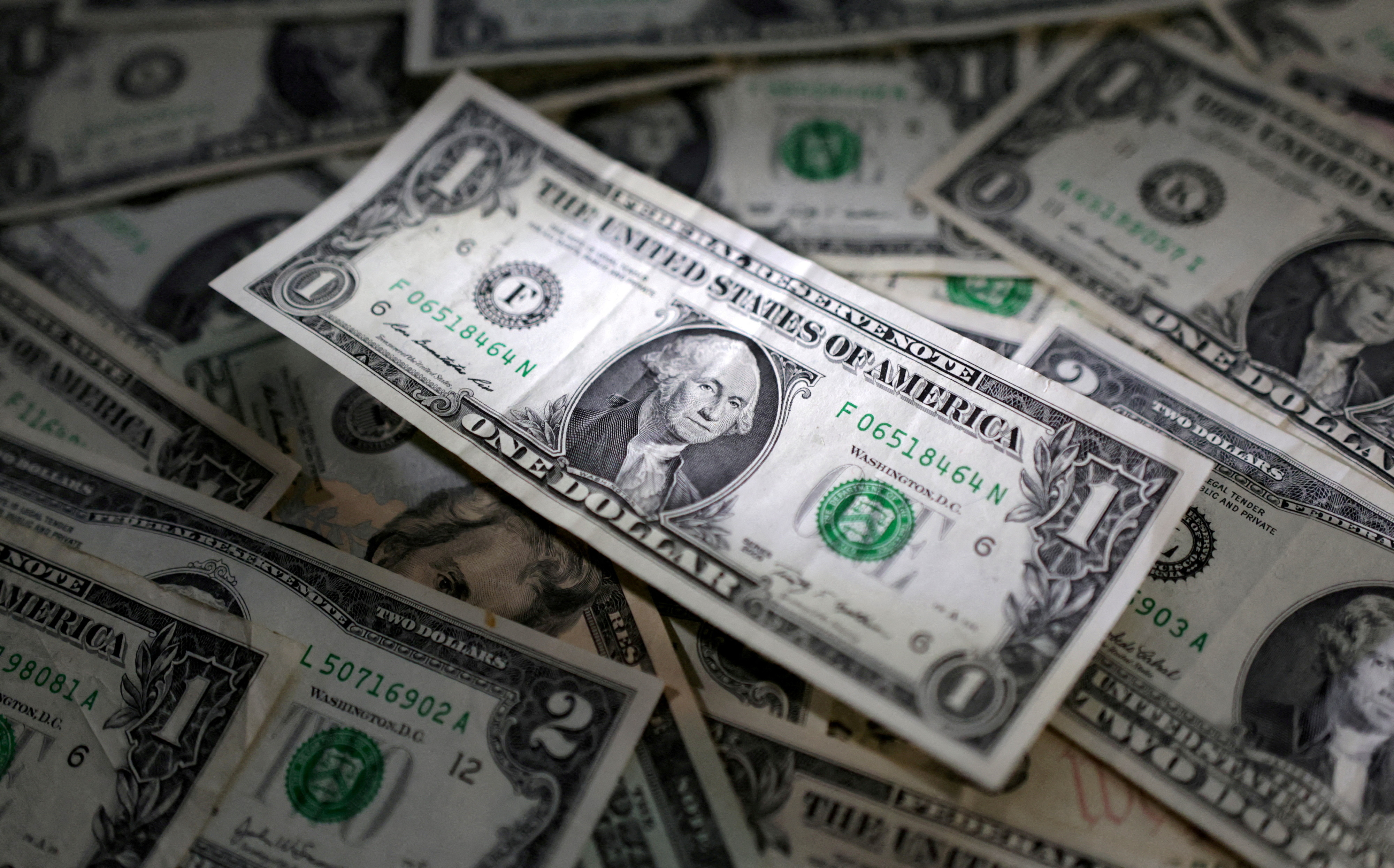Is the Naira Losing Its Relevance? The Growing Dollarization of Local Transactions in Nigeria

It is weeks to Detty December, Caroline is already in Lekki, Lagos. She took the last three months of the year as leave, deciding in her 26-year-old mind that Lagos will be perfect to spend it in, bonding with family and old friends.
Yesterday, Caroline decided to visit a popular bakery store along their church path and she got one of the shocks of her life: “It is $10, ma”. She could still hear the voice of the fair-skinned cashier ringing in her ears as she checked in the doughnut and cake she picked, minutes after she left.
Did Nigeria no longer have a currency? When did local businesses start to use dollars in local transactions? Is it even legal? All these questions ran through Caroline's mind as she drove back home.
To some Nigerians, Caroline's story seems unreal, but to many, they have, in fact, experienced it.
This brings us to the big question: Is Naira no longer a worthy means of transactions, even its own country?

What Dollarisation Looks Like
Dollar usage in Nigeria takes many forms. Some businesses slap prices on imported goods with the tendency of depreciating, in dollars to avoid sudden losses when the naira falls.
Employers sometimes pay expatriate staff or settle international suppliers directly in dollars. More visible are restaurants, house prices, and even some retail prices being quoted in dollars or indexed to a dollar rate. And one begin to wonder if they lived in the USA or in Nigeria.
Even, at the formal level, domiciliary accounts and offshore invoicing mean many firms already keep and transact in foreign currency.
Informally, dollar-denominated pricing has trickled down to markets where the traders’ prices hedge against naira-dollar swings, increasing the prices at the slightest drop of Naira in the market.
These mixed practices signal a partial, market-driven dollarisation rather than a formal legal change.
Why Businesses Choose Dollars
There are four main drivers pushing businesses toward dollars.
First, protection from currency depreciation and inflation. The naira went through dramatic volatility in recent years and many firms use the dollar to preserve margins and predict costs.
For import-dependent businesses, input costs are paid in dollars, so invoicing or keeping accounts in dollars reduces currency mismatch risk.
Second, contract certainty for cross-border transactions. Companies with foreign suppliers or clients often prefer contracts in a stable currency to avoid litigation over exchange-rate losses. For exporters, receiving dollars directly is a natural hedge against local currency swings.
Third, limited and costly access to dollars through official channels at times encourages parallel-market pricing and direct dollar invoicing. When official FX windows tighten or backlog payments accumulate, businesses turn to domiciliary accounts, offshore transfers, or dollar pricing to keep operations smooth. Reforms and unifications in FX windows have helped at points, but gaps remain.
Finally, diaspora remittances and foreign demand increase local dollar liquidity in pockets of the economy, enabling some businesses to transact in dollars easily while others cannot. This results in uneven dollar use across sectors and regions.

How the Government and Regulators Have Responded
Nigeria’s regulators and lawmakers have not been idle. The Central Bank of Nigeria (CBN) has repeatedly emphasized the primacy of the naira for domestic transactions and has issued circulars discouraging currency substitution.
At the same time, the CBN has been implementing FX market reforms, trying to unify windows, clearing FX backlogs, and publishing the Nigerian Foreign Exchange (FX) Code to improve market functioning and transparency.
Those reforms are meant to restore confidence in the naira and reduce incentives for dollar pricing.
On the legislative front, there have been proposals to outlaw or limit the use of foreign currencies for local trade. The Senate at one point considered bills aimed at banning the use of the dollar and other foreign currencies in domestic transactions.
As much as it is a valid political statement of currency sovereignty, it is also a complex and potentially unenforceable policy in practice.
More practically, the government’s broader macro moves like the removal of costly fuel subsidies, recalibrating monetary policy, and taking IMF-backed reforms, have aimed to stabilise the macroeconomic environment and the exchange rate.
These reforms have yielded mixed results: while reserves recovery and some disinflation have occurred, exchange-rate volatility and memories of prior crashes keep many businesses cautious.
Citizens’ Reactions: Between Relief and Exclusion
Public reaction is split. Some consumers and business owners welcome dollar pricing as a predictable yardstick in a volatile currency environment where it can shield savings or business margins from a sudden naira fall.
For wealthier households with access to foreign currency, dollar-denominated rents or school fees may even feel convenient.
But the downside is stark: dollarisation risks excluding lower-income Nigerians who are paid primarily in naira and cannot easily access dollars. When landlords or service providers demand dollars, ordinary families face affordability shocks.
Social media and public debates have reflected anger and anxiety where salaries buy less and essential services drift toward dollar pricing. These tensions explain why legislative proposals to ban dollar use gain political traction even if enforcement would be difficult.
Risks and Long-Term Implications
Partial dollarisation undermines monetary policy. If prices and contracts increasingly anchor to a foreign currency, the central bank’s ability to manage inflation and demand through interest rate moves becomes weaker.
The reverse risk matters too: heavy-handed bans or abrupt attempts to force transactions back into naira without addressing the root causes (volatility, import dependence, FX shortages) could cause market distortions, capital flight, or black-market expansion.
The pragmatic path for policymakers is therefore two-sided. They need to restore confidence in the naira via credible macro policy and market reforms, while protecting citizens who lack dollar access from sudden price shifts.
What Could Work: Pragmatic Steps
Short-term, the CBN and fiscal authorities should keep tightening FX market functioning (transparency, liquidity), protect critical FX flows for imports, and accelerate measures that bring real dollar earnings into the country.
Medium-term, diversifying export earnings and reducing import dependence for consumer goods will reduce the economy’s natural impulse to price in dollars.
Finally, social measures targeted subsidies or credit lines in naira for households and MSMEs can reduce the exclusionary effects of informal dollar pricing.
The dollar’s rise in Nigerian local transactions is, first and foremost, a market response to instability as firms and individuals are trying to protect value, preserve contracts, and keep operations running.
Regaining the naira’s centrality will require sustained macro stabilization, credible FX market reforms, and policies that make naira-denominated commerce predictable.
Until then, expect a patchwork economy where dollars and naira coexist: a harsh reality that mixes practical risk-management with painful social inequality.
Recommended Articles
There are no posts under this category.You may also like...
When Sacred Calendars Align: What a Rare Religious Overlap Can Teach Us

As Lent, Ramadan, and the Lunar calendar converge in February 2026, this short piece explores religious tolerance, commu...
Arsenal Under Fire: Arteta Defiantly Rejects 'Bottlers' Label Amid Title Race Nerves!

Mikel Arteta vehemently denies accusations of Arsenal being "bottlers" following a stumble against Wolves, which handed ...
Sensational Transfer Buzz: Casemiro Linked with Messi or Ronaldo Reunion Post-Man Utd Exit!

The latest transfer window sees major shifts as Manchester United's Casemiro draws interest from Inter Miami and Al Nass...
WBD Deal Heats Up: Netflix Co-CEO Fights for Takeover Amid DOJ Approval Claims!

Netflix co-CEO Ted Sarandos is vigorously advocating for the company's $83 billion acquisition of Warner Bros. Discovery...
KPop Demon Hunters' Stars and Songwriters Celebrate Lunar New Year Success!

Brooks Brothers and Gold House celebrated Lunar New Year with a celebrity-filled dinner in Beverly Hills, featuring rema...
Life-Saving Breakthrough: New US-Backed HIV Injection to Reach Thousands in Zimbabwe

The United States is backing a new twice-yearly HIV prevention injection, lenacapavir (LEN), for 271,000 people in Zimba...
OpenAI's Moral Crossroads: Nearly Tipped Off Police About School Shooter Threat Months Ago
ChatGPT-maker OpenAI disclosed it had identified Jesse Van Rootselaar's account for violent activities last year, prior ...
MTN Nigeria's Market Soars: Stock Hits Record High Post $6.2B Deal

MTN Nigeria's shares surged to a record high following MTN Group's $6.2 billion acquisition of IHS Towers. This strategi...
